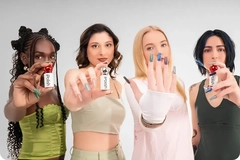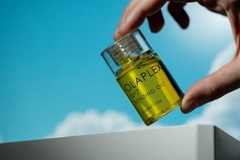Beauty business snapshot: L’Oréal, Unilever, Coty and Edgewell release financials

10 Feb 2023 --- Market uncertainties pertaining to inflation, disrupted supply chains and fluctuating demand for luxury purchases have pivoted beauty companies to shift gears in fiscal 2023. However, newly released annual results maintain a bullish outlook as industry’s hair and skincare titans have managed to keep ahead of sales predictions.
In spite of a “drastic slowdown” of the Chinese luxury market, L’Oreal reports a sales rise in the fourth quarter as the company pivoted toward an online sale strategy due to the nation’s zero-Covid policy in the country. Robust demand for beauty products in the Americas also helped cushion this weak point.
Also flagging challenging macroeconomic conditions, Unilever delivered a year of “strong topline growth,” with Oral Care driving in performance in its Personal Care division. Meanwhile, Coty’s business outpaced forecasts, despite significant industry-wide constraints in key fragrance components.

L’Oréal highlights hair care premiumization
Professional hair care treatments boosted L’Oréal’s performance significantly. Sales of the beauty giant amounted to €38.26 billion (US$41.1 billion) in 2022, up by 18.5%.
“Comparable growth vs. 2019 accelerated quarter after quarter and reached 23% over the full year,” details Nicolas Hieronimus, CEO of L’Oréal.
 Professional hair care treatments boosted L’Oréal’s performance significantly (Image credit: L’Oréal).L’Oréal’s Professional Products division maintained its growth momentum across all geographic Zones, with “outstanding” performances in mainland China, India and Brazil. In China, in particular, L’Oréal flags that the beauty market was clearly affected by the public health restrictions. However, in this challenging context, L’Oréal grew appreciably, with a double-digit increase in online sales.
Professional hair care treatments boosted L’Oréal’s performance significantly (Image credit: L’Oréal).L’Oréal’s Professional Products division maintained its growth momentum across all geographic Zones, with “outstanding” performances in mainland China, India and Brazil. In China, in particular, L’Oréal flags that the beauty market was clearly affected by the public health restrictions. However, in this challenging context, L’Oréal grew appreciably, with a double-digit increase in online sales.
Growth in the premiumizing hair care market was largely driven by the performance of Kérastase – whose sales “exceeded the symbolic one-billion-euro mark” for the first time – alongside the Série Expert line by L’Oréal Professionnel, which includes the Metal Detox innovation that gently cleanses and removes metal after color, balayage or lightening.
Professional Products also achieved growth in hair color, with its classic lines Shades EQ by Redken and Inoa by L’Oréal Professionnel. Meanwhile, L’Oréal’s Consumer Products division posted its “best growth in 20 years” (14.6%). All major brands outperformed the market.
Consumer Products achieved sustained growth in hair care, with a focus on Elvive Hyaluron Plump. Makeup was the Division’s fastest growing category, with successful launches including Superstay Vinyl Ink by Maybelline New York – the “first long-wear, shiny, liquid lipstick” – as well as Bare With Me concealer and Jumbo False Eyelashes by NYX Professional Makeup.
In Consumer Products skincare, Garnier was the Division’s top growth contributor, with its Vitamin C Brightening Serum a “standout success.”
L’Oréal’s Luxe division saw an 18.6% reported growth. This performance was driven by global bestsellers, such as Libre by Yves Saint Laurent, La Vie Est Belle by Lancôme and Acqua di Gio by Armani, as well as launches that had an impressive start, including Prada Paradoxe.
In skincare, Luxe grew three times faster than the market, spurred by the ultra-premium segment, with a “spectacular” performance from Helena Rubinstein, innovations such as Lancôme’s Rénergie H.C.F Triple Serum, and the success of recent acquisitions including the Japanese brand Takami. The Division also grew in makeup, thanks to the initiatives of Yves Saint Laurent and Urban Decay.
L’Oréal’s Active Cosmetics Division ended the year with growth of 30.6% based on reported figures. Reportedly, the category grew twice as fast than the general dermocosmetics market.
Active Cosmetics posted double-digit growth in all zones, with a “remarkable” performance in North America, South Asia Pacific, Middle East, North Africa and Sub-Saharan Africa and mainland China. La Roche-Posay and CeraVe contributed equally to the division’s growth, driven by the success of the UVMune 400 “breakthrough innovation” in sun protection.
Vichy maintained its strong momentum thanks to Dercos and the Capital Soleil UV franchise in both seasonal and daily sun protection. On the aesthetic front, SkinCeuticals recorded double-digit growth, fuelled by the excellent performance of A.G.E Interrupter anti-wrinkle cream. The newly acquired brand Skinbetter Science, integrated into Active Cosmetics in the fourth quarter, showed “promising potential.”
Unilever’s Oral Care achieved price-led growth, helped by the relaunch of Pepsodent (Image credit: Pepsodent).Unilever offsets inflation through price increases
Unilever delivered a year of “strong topline growth” throughout challenging macroeconomic conditions. “Underlying sales growth was 9%, driven by intense pricing action in response to high input cost inflation,” highlights CEO Alan Jope.
Unilever’s Beauty & Wellbeing division grew underlying sales by 7.8%, driven by price increases. Volumes were slightly positive, helped by another year of strong growth in the Prestige Beauty and Health & Wellbeing category, which now account for more than €2.5 billion (US$2.67) of turnover.
Personal Care underlying sales were up 7.9%, driven by strong pricing, notes Unilever. Volumes grew in Deodorants, but declined in other categories. Oral Care achieved price-led growth, helped by the relaunch of Pepsodent with increased naturals and efficacy credentials in South East Asia, Africa and the Middle East, partially offset by a sales decline in Europe. Sales of Dollar Shave Club declined during the year, and an impairment charge was recognized related to the business.
Home Care, which was particularly exposed to rising input costs, delivered the highest price growth leading to underlying sales growth of 11.8% – even as volume of sales declined 3.5%. Driving this division, Fabric Cleaning grew double-digit while holding volumes almost flat. This was led by “very strong performances” in South Asia, Brazil, Turkey and Vietnam with modest sales growth in Europe and China. Unilever noted particularly strong contributions from detergents OMO and Radiant.
Also within Home Care, Fabric Enhancers grew high single-digit with modest volume decline. The Comfort brand delivered high growth in Latin America, South Asia and Turkey, but declined in Europe where consumers reduced their spending in the category. Home & Hygiene grew slightly, with high single-digit volume losses across most markets, while Air Wellness declined in 2022.
Coty fragrances top rankings
Coty’s reported sales performance in the second quarter of fiscal year 2023 with a 3% year-over-year sales decline to US$1.52 billion. But the makeup giant came in ahead of Wall Street expectations – stock is up 17.8% year-to-date – despite significant industry-wide constraints in key fragrance components.
 Coty’s key Prestige fragrance launches reached top positions, with Gucci Flora Gorgeous Jasmine as the top innovation (Image credit: Gucci).During the quarter, Coty reports consumer demand for beauty products – particularly prestige fragrances – remained robust, with high-single-digit growth in the prestige fragrance market and mid-single-digit growth in the mass beauty market.
Coty’s key Prestige fragrance launches reached top positions, with Gucci Flora Gorgeous Jasmine as the top innovation (Image credit: Gucci).During the quarter, Coty reports consumer demand for beauty products – particularly prestige fragrances – remained robust, with high-single-digit growth in the prestige fragrance market and mid-single-digit growth in the mass beauty market.
“The company’s Prestige category revenue and sell-out growth continued to be constrained by industry-wide component shortages caused by accelerated fragrance demand. But Coty claims it has already begun to see an improvement in its Prestige service levels entering Q3,” reveals the company.
Coty’s key Prestige fragrance launches reached top positions, with Burberry Hero EDP ranking as the top third innovation, Boss Bottled Parfum as the top second and Gucci Flora Gorgeous Jasmine as the top innovation in most key markets.
Meanwhile, Prestige makeup revenues were impacted by the COVID-related total lockdowns in China. However, Coty continued to drive momentum outside of China, with particular strength in the US, where retail sales of Gucci makeup and Kylie makeup reportedly grew over 40%.
Coty's Consumer Beauty business delivered a strong performance in Q2, supported by “solid market growth” and Coty gaining market share. Consumer Beauty Q2 revenues decreased 1% as reported and grew 6% like-for-like, which included approximately 2.5% of negative impact from Coty’s exit from Russia.
Edgewell Personal Care struck by high costs
Edgewell Personal Care’s net sales were US$469.1 million in its first fiscal quarter of 2023, ended December 31, 2022, an increase of 1.3%. This included a net US$12 million or 2.6% benefit from the acquisition of women’s shaving brand Billie and a US$20.2 million or 4.3% negative impact from currency.
Organic net sales increased 3%, with 5.8% growth in International markets, driven by Sun Care and Women’s Shave, and 1.2% growth in North America markets driven by Men’s Shave and Feminine Care. Overall, organic net sales increased 4.5% led by higher pricing.
Gross profit was US$189 million compared to US$189.9 million in the same period the prior year.
The company’s gross profit margin declined 1.5% due to the impact of higher commodity and transportation prices. However, higher productivity and price increases allowed the company to partially offset the inflation effects on margins.
“We had a good start to the fiscal year as we delivered our seventh consecutive quarter of growth, and our team continued to perform well in a challenging environment. International growth was a highlight, driven by volume and price gains and reflective of a strong start to the sun season,” remarks Rod Little, Edgewell’s president and CEO.
“In North America, we successfully implemented further pricing across the portfolio and broadly held US share in the period. In addition to the benefits from higher pricing, our focus on productivity initiatives and good cost control reinforced gross and operating margins, while we maintained a high level of brand investment.”
By Benjamin Ferrer













